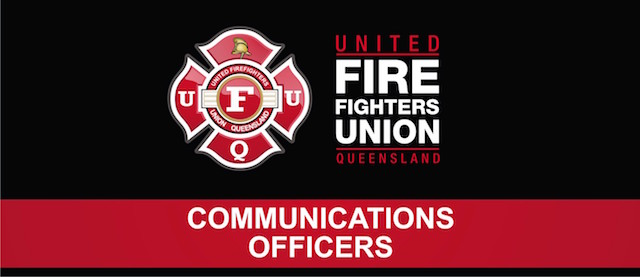
FIRE COMMUNICATIONS UPDATE - 13 may 2020
PROPOSAL BY FCORP FOCUS GROUP REJECTED BY QFRS (TOO EXPENSIVE)
As you would be aware, QFRS recently rushed through a review of the Fire Communications Officer Recruit Program (FCORP), and a recruit course commenced on 24 February 2020 without the support of the UFUQ for reasons previously explained to you in my update of 14 February 2020.
During workshops held back in August 2019, FCORP focus group members proposed a new recruit program model that incorporated modules taught in region meaning FCO recruits would be exposed to shift work (i.e. the 10/14 roster), as non-exposure to shift work has been a contributing factor to attrition rates for new recruits, and the UFUQ supported the proposal put forward by focus group members.
Importantly, we made it clear that we had concerns that this model didn’t comply with clause 15.3(b) of the Award and suggested to QFRS representatives that we enter into discussions to ensure that your conditions of employment would not be reduced.
QFRS did not make contact with the UFUQ until 24 February 2020, some six months later and on the very day the new recruit course started.
In their correspondence to the UFUQ, QFRS simply iterated the proposal put forward by focus group members, and provided no information about how they proposed to compensate FCO recruits for working outside of the spread of ordinary hours (i.e. 0800 to 2000, Monday to Friday) and the maximum ordinary hours of work per day (i.e. 10) for training (as prescribed in 15.3(b) of the Award).
To be clear, QFRS simply sought the UFUQ’s agreement to reduce your conditions of employment by not paying FCO recruits in accordance with longstanding Award provisions.
In reply, on 26 February 2020, the UFUQ appropriately advised QFRS that we rejected any proposal to reduce your conditions of employment, as your CA19 requires that no entitlements will be reduced. We considered a reduction of your conditions of employment to be in breach of clause 9(d) of CA19 (the ‘no further claims’ clause).
In a sign of how important QFRS consider this matter to be, it was not until 29 April 2020 that they made contact again with the UFUQ.
This time around, in their correspondence to the UFUQ, QFRS suggested that FCO recruits were compensated for working outside of the spread of ordinary hours (i.e. 0800 to 2000, Monday to Friday) and the maximum ordinary hours of work per day (i.e. 10) for training because they are in receipt of total rates that include averaged night shift, weekend shift and 38 hour week allowances in accordance with CA19 wage provisions.
Again, QFRS sought the UFUQ’s agreement to reduce your conditions of employment, asking for our agreement for them to breach both the Award and CA19.
In reply, on 1 May 2020, the UFUQ appropriately advised QFRS that we understand the intention of the proposal, which is supported by our members, but that we reject any proposal until such time as they confirm they do not seek to contravene the Award and that UFUQ members will be remunerated appropriately.
We clearly advised QFRS that FCO recruits (or any FCO engaged in a residential training course) are entitled to be paid overtime for any hours they are required to work outside of 0800 to 2000, Monday to Friday (i.e. their ‘recognised times for starting or finishing work on any day’) or in excess of 10 hours per day.
The UFUQ received a reply to our correspondence on 13 May 2020. QFRS have simply advised that the hours of work for future recruit courses will be in accordance with the ordinary hours of work prescribed in the Award, and they provided no response to our suggestion that the proposal can go ahead as long as FCO recruits are paid what they are entitled to. In effect, they have rejected the proposal put forward by focus group members because it is too expensive meaning that non-exposure to shift work will remain a contributing factor to attrition rates for new recruits.
Once again, QFRS have not shown FCOs the respect you deserve. It is clear that the FCORP review was simply an exercise in trying to save money. The original rushed changes were commenced not to improve the course, not to improve the quality of the training and not to improve the standard of recruit.
In the UFUQ’s view there is nothing preventing FCO recruits from being exposed to shift work other than QFRS’ attitude to make the recruit course as cheap as possible with little to no regard for anything related to the quality of the training or its outcomes.
The UFUQ will continue to do all we can to ensure the recruit program is the best it can be, but we are unfortunately up against a mix of ineptitude, ignorance and also some continued defiantly erroneous beliefs about what genuine consultation is. I will ensure UFUQ representatives raise this matter with those responsible for the recruit course at the earliest opportunity.
John Oliver – General Secretary
Authorised by John Oliver General Secretary
United Firefighters' Union of Australia, Union of Employees QLD
